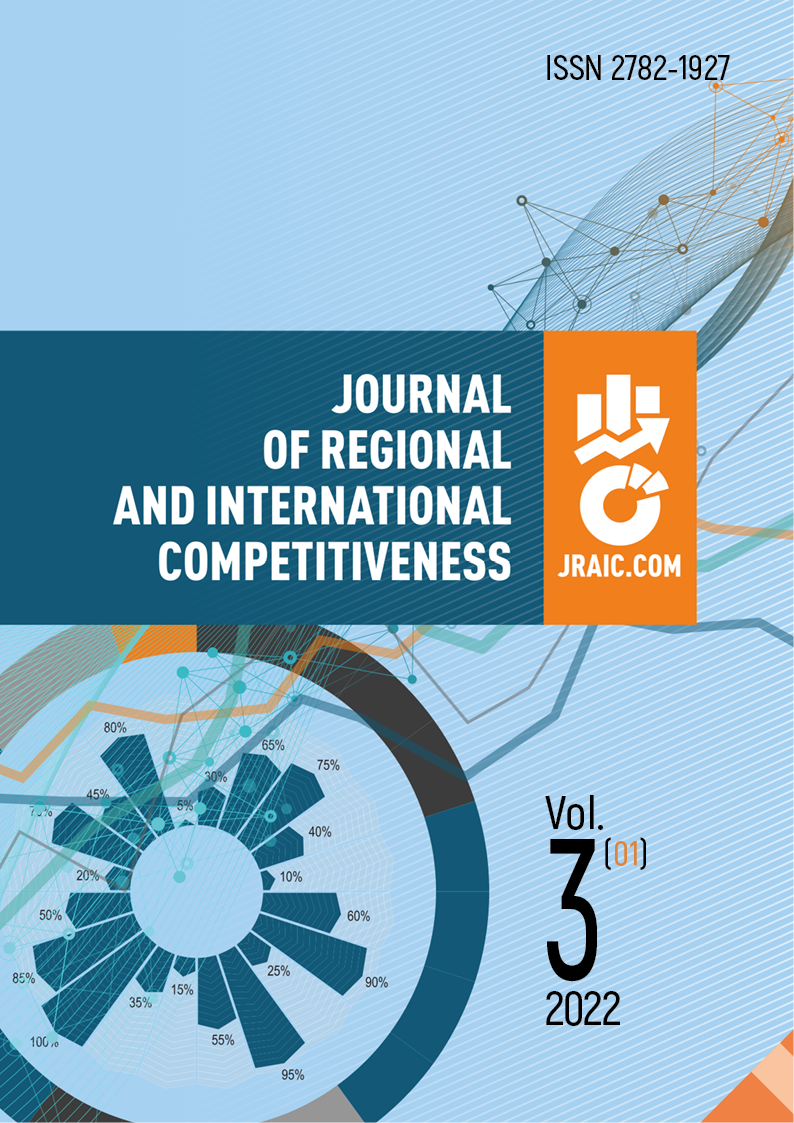Yaroslavl, Yaroslavl, Russian Federation
Yaroslavl, Yaroslavl, Russian Federation
One of the main tools for assessing a firm’s performance is an analysis of its logistics performance, which enables an objective characterization of the internal and external relationships of the analyzed entity, its development prospects, and opportunity of further making substantiated managerial decisions. The aim of the study is to develop a methodological approach to assessing the effectiveness of an integrated transport and logistics system to enable operational management decisions. The study identifies the functioning features of an integrated transport and logistics system and the factors affecting the efficiency of the functioning of an integrated transport and logistics system. Also the authors develop an algorithm for assessing the efficiency of an integrated transport and logistics system. The authors’ methodological approach allows us to identify problem areas and active areas of the integrated transport and logistics system. Also it makes possible to make management decisions aimed at improving the efficiency of the system’s functioning in the interests of all participants.
LOGISTICS, EFFICIENCY ASSESSMENT, INTEGRATED TRANSPORT AND LOGISTICS SYSTEM, LOGISTICS MANAGEMENT, DECISION-MAKING
1. Anikin, B. A. & Rodkina, T. A. (Eds.) (2013). Logistics and supply chain management. Theory and practice. Fundamentals of logistics. M.: Prospect (in Russian).
2. Gadzhinskiy, A. M. (2006). Logistics. M.: Dashkov and Co (in Russian).
3. Nerush, M.Yu. (2006). Logistics. M.: Prospect (in Russian).
4. Wardlow, Daniel L., Wood, Donald F. Johnson, James, & Murphy, Paul R. Jr. (2002). Contemporary Logistics. (7th ed.). M.: Williams (in Russian).
5. Sergeev, V. I. (1997). Management in business-logistics. M.: Filin (in Russian).
6. Mirotin, L. B., & Sergeev, V. I. (Eds.) (2000). Fundamentals of Logistics. M.: INFRA-M (in Russian).
7. Rodkina, T. A. (2001). Information Logistics. M.: Examen (in Russian).
8. Stepanov, V. I. (2006). Logistics. M.: Prospect (in Russian).
9. Johnson, James S., Wood, Donald F., Wardlow, Daniel L., & Murphy Paul R. Jr. (2002). Modern Logistics. N.A. Korzh (Ed.). (7th ed.). M.: Williams (in Russian).
10. Winkelhaus, S., & Grosse, E. H. (2020). Logistics 4.0: a systematic review towards a new logistics system. International Journal of Production Research, 58(1), 18-43.
11. Samal, S. K. (2019). Logistics and supply chain management. International Journal of Psychosocial Rehabilitation, 23(6), 361–366. https://doi.org/10.37200/IJPR/V23I6/PR190779
12. Tijan, E., Aksentijević, S., Ivanić, K., & Jardas, M. (2019). Blockchain technology implementation in logistics. Sustainability, 11(4), 1185. https://doi.org/10.3390/su11041185
13. Rubio, S., Jiménez-Parra, B., Chamorro-Mera, A., & Miranda, F. J. (2019). Reverse logistics and urban logistics: Making a link. Sustainability, 11(20), 5684. https://doi.org/10.3390/su11205684




















